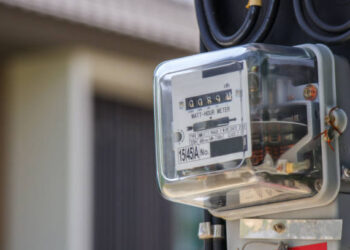The Governor of the Central Bank of Nigeria (CBN), Olayemi Cardoso, has revealed that Nigeria’s trade surplus has risen to 6% of the nation’s Gross Domestic Product (GDP), noting that this is expected to remain at that level in the near future.
The CBN Governor attributed the improved balance of trade to sound macroeconomic policies that are beginning to yield positive results.
According to a press statement signed by the Director of Information and Public Relations of Federal Ministry of Finance, Mohammed Manga, this was made known by Cardoso while speaking at the G-24 press briefing on the sidelines of the IMF/World Bank Annual Meetings in Washington.
Cardoso who stood in for the Finance Minister, Wale Edun, who is the first Vice Chair of the G24, noted that Nigeria had been shielded from the global uncertainties.
Nigeria shines at G24 meetings
Manga in the statement said, ‘’As the world watches, Nigeria’s economic prospects are shining brighter, with the Honourable Minister of State for Finance, Dr. Doris Uzoka-Anite, joining the Governor of the Central Bank of Nigeria (CBN), Mr. Olayemi Cardoso, as part of the Nigerian delegation at today’s G24 meetings on the sidelines of the IMF/World Bank Annual Meetings in Washington D.C. The meetings provided a platform for discussions on key themes such as domestic resource mobilization, inflation, and sound macroeconomic policies.
‘’During the meetings, Cardoso disclosed that Nigeria’s trade surplus has risen to 6% of the nation’s Gross Domestic Product (GDP) and is expected to remain at that level in the near term. He attributed the improved balance of trade to sound macroeconomic policies that are beginning to yield positive results.
‘’The CBN Governor also highlighted the importance of maintaining sound macroeconomic policies, noting a strong correlation between disciplined economic management, growth, and disinflation. He further disclosed that the apex bank is working on a framework to make currency swaps with other countries a win-win affair.’’
Cardoso noted that there is a complete restructuring of the economy, with a competitive currency encouraging people to go into domestic production and, of course, discouraging imports.
Dr. Uzoka-Anite’s participation in the meetings underscores the Nigerian government’s commitment to engaging with international financial institutions and stakeholders to drive economic growth and development. Her presence at the G24 meetings demonstrates the government’s proactive approach to fostering economic cooperation and dialogue with global partners.
The statement added, ‘’The meetings mark a significant step forward for Nigeria’s economic growth and development, as the country continues to engage with international financial institutions and stakeholders to drive progress and improve the lives of its citizens.’’
What you should know
Meanwhile, the National Bureau of Statistics (NBS) had earlier in its report stated that Nigeria’s trade surplus increased by 44% in Q2, 2025.
Nigeria’s total merchandise trade stood at N38,037.52 billion in Q2, 2025. This represents an increase of 20.05% over the value; N31,683.75 billion recorded in the corresponding period of 2024 and an increase by 5.59% compared to the value recorded in the preceding quarter (N36,024.66 billion).
In the quarter under review, exports accounted for 59.81% of total trade with a value of N22,750.74 billion, showing an increase of 28.43% over the value recorded in the corresponding quarter of 2024 (N17,714.41 billion) and by 10.45% compared to the value recorded in Q1, 2025 (N20,598.48 billion).
Crude oil accounted for N11,965.98 billion, representing 52.60% of total exports. Non-crude oil exports stood at N10,784.76 billion, accounting for 47.40% of total exports; of which non-oil products contributed N3,045.55 billion or 13.39% of total exports.
Imports accounted for 40.19% of total trade in the second quarter of 2025, with a value of N15,286.78 billion representing a 9.43% increase, compared to N13,969.34 billion recorded in Q2 2024, and 0.90% decrease from N15,426.17 billion recorded in Q1 2025.





















